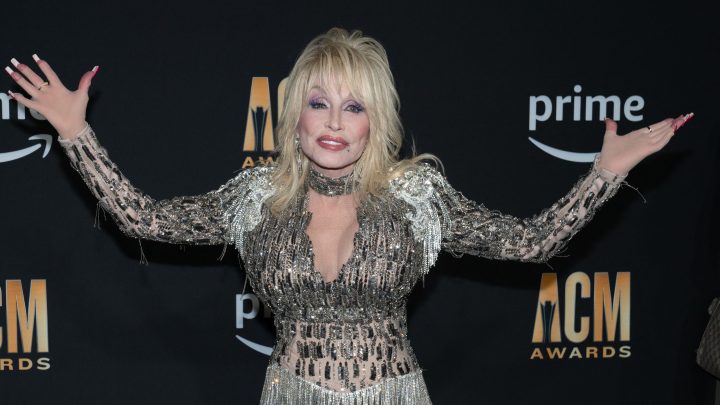
What the Rollings Stones, Dolly Parton and others teach us about the economic benefits of aging
What the Rollings Stones, Dolly Parton and others teach us about the economic benefits of aging

Picture, if you will, Marketplace’s senior economics contributor Chris Farrell under Bluetooth headphones. He’s scowling at accounts of policymakers complaining how aging demographics might hurt America’s creativity and innovation — even as he listens to a rich playlist of music created by artists are that not in their teens, 20s, 30s, 40s, 50s or even 60s. It’s the septuagenarians’ new original works.
Chris Farrell recently joined “Marketplace Morning Report” host David Brancaccio to talk about this phenomenon. Below is an edited transcript of their conversation.
David Brancaccio: All right, Chris, let’s hear your music argument.
Chris Farrell: All right, here it goes. Society doesn’t appreciate how many artists continue to create well into their later years. And, we have some recent examples that highlight how creativity can flourish over the long haul. Take the Rolling Stones and their new album, “Hackney Diamonds.” Mick Jagger, he’s 80 years old. Keith Richards, 79. So let’s listen to their new song “Whole Wide World.”
Brancaccio: All right, so The Stones have announced a new tour and other not-so-spring chickens have the creative juices flowing, Dolly …
Farrell: Dolly Parton, age 77, and she recently released her first rock album, “Rockstar,” which features both original songs and covers with an incredible roster of performers. Now, here’s Dolly from her song “Rockstar.”
Brancaccio: Wild album full of wild partnerships. So let’s see — Bonnie Raitt, age 73, got a Grammy last year for “Just Like That.” 71-year-old Bruce [Springsteen] put out a 2020 album, “Letter to You.” But what does their creative output tell us about prospects for the wider economy, given this aging population? Most of us aren’t creating original art that speaks to huge audiences.
Farrell: Well, I think once again, David, you know, musicians and artists, they’re uniquely positioned to point the way of the broader culture, where we’re going. So instead of wringing our hands over an aging population, policy makers and corporate leaders should concentrate on coming up with ways that keep older workers productively engaged in the workforce and on the job longer. And the payoff, scholarly evidence have plenty of accumulated anecdotes, which you just listened to. You know, they show that inventiveness doesn’t disappear with the accumulation of birthdays. But workers have to be given the opportunity to exercise their creativity over time.
Brancaccio: And you’ve reported on this, you’ve written a lot about this. There is a firm tradition of people taking their accumulated skills and wisdom of years and starting new lucrative ventures in what others might have considered “retirement years.”
Farrell: Yeah, so this 55-to-64 year old age group has accounted for about a quarter of all new entrepreneurs in recent years. The share of self-employed as the main job, that rises dramatically with age. Put it this way, David: We have an extraordinary chance to rethink what it means to grow old.
There’s a lot happening in the world. Through it all, Marketplace is here for you.
You rely on Marketplace to break down the world’s events and tell you how it affects you in a fact-based, approachable way. We rely on your financial support to keep making that possible.
Your donation today powers the independent journalism that you rely on. For just $5/month, you can help sustain Marketplace so we can keep reporting on the things that matter to you.











